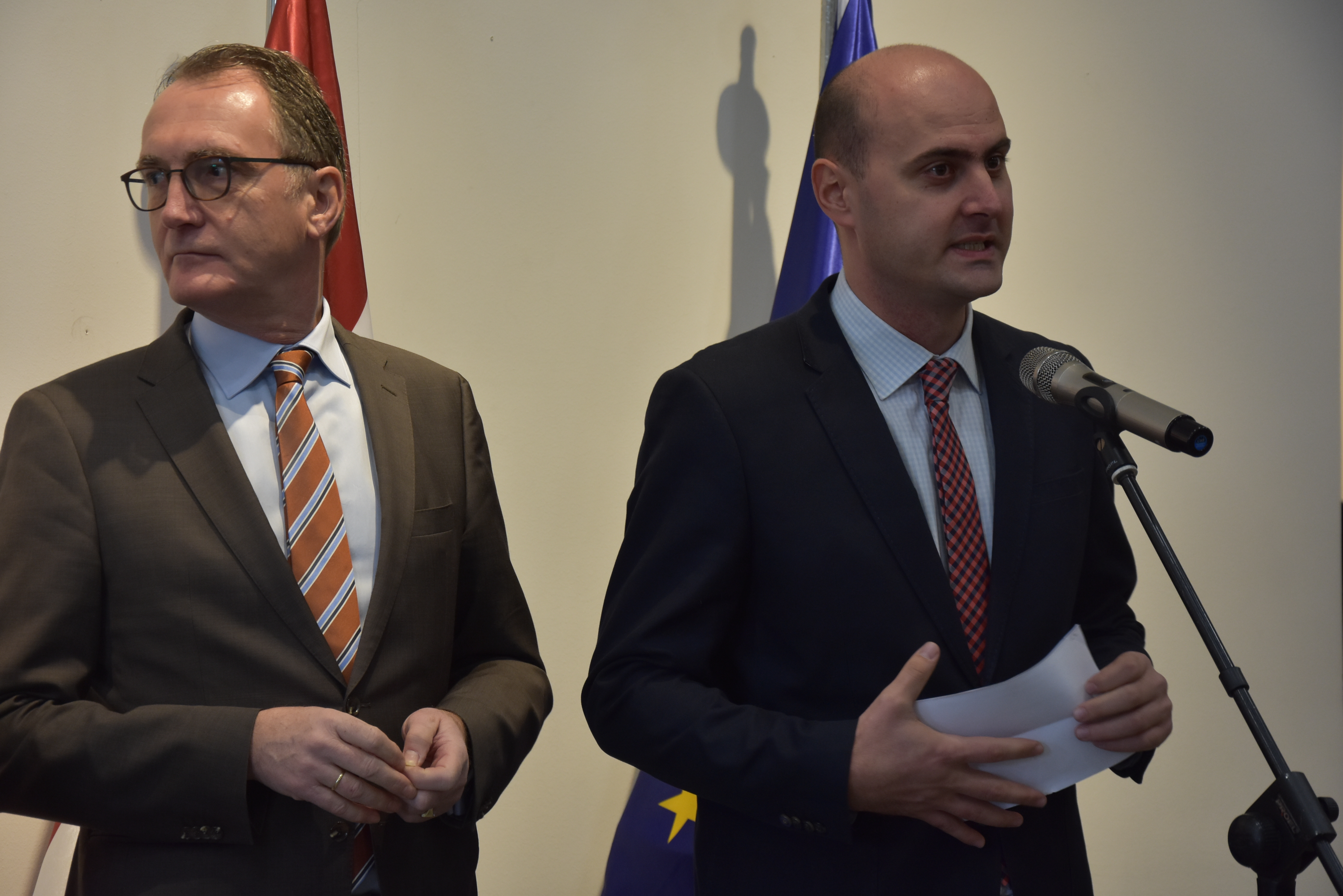
Current situation by areas:
Equality
EU-Georgia Association agenda focuses on the importance of protecting the rights of pregnant women, mothers and parents. After signing the Association Agreement, Government of Georgia has not made any appropriate ammendments to the legal regulations in spite of the fact that this is one of those three priorities that have been set out in the section of equality. The lack of progress in this area is hampering the full implementation of the Association Agreement.
Children’s rights
Facts of ill-treatment of children in orphanages, described in the special report of the Public Defender of Georgia for 2015, still remains without an adequate responde. In order to study existing situation in such institutions, EU-Georgia Association Agenda focuses on the expansion of monitoring of children’s rights and on the need to enhance the role of the Public Defender.
Labor rights
In accordance with the requirements of the European Union, the Government of Georgia amended the Labor Code, which envisages the creation of the Tripartite Commission on the Regulation of Social and Labour Relations, which is in charge of solving labor disputes. According to the regulation Tripartite Commission should meet quarterly. However, the Commission established in 2013 has held only two meetings so far. Tripartite Commission remains incapable body and is not involved in the labor dispute resolution process.
Environmental Protection
Policy documents developed by the Government of Georgia set out the goals in the field of energy, regional development and transport that may result in a direct or indirect impact on the environment. A policy planning system requires significant improvement.
Energy sector
Tariffs subsidized in energy sector (electricity and gas) leads to ineffective use of energy and prevents the development of energy efficient technologies. Georgia’s electricity and gas subsidies are of large scale, as a result of which the energy consumption per capita is 2-3 times more in Georgia than in other EU countries and thus, its dependence on imported energy is increasing. Subsidies in the energy sector of Georgia needs to be reviewed in order to increase their effectiveness.
Agriculture
In the nearest future, protection of food safety will become a necessary pre-condition for geting into the market for agricultural products. Family farms, which are almost 90% of manufacturers of agricultural product, are rarely informed on legal requirements.
Education and youth
Although, 2016 is the last year for the implementation of the EU-Georgia Association Agenda, one of the most important and specific commitments that has been undertook by Georgia under this document – adoption of the new Law on Vocational Education – has not yet been implemented.
Conflicts
Current form of the Law of Georgia on occupied territories prevents the distribution and accessibility of benefits of the Association Agreement for people living in Abkhazia and South Ossetia. This law may also pose some problems for Abkhazia and South Ossetia in terms of expansion of visa-free travel with the EU.
Culture
Despite the obligations under the Association Agreement, cultural heritage is still considered as a narrow field and not as one of the main directions of the state policy, which should be reflected in all other strategic policy documents. It has negative impact on cultural heritage, which is reflected in assassination of authenticity of the cultural heritage, as well as in the destruction of certain monuments and cultural landscape.
Media
According to the Audiovisual Media Services Directive, the Government of Georgia should harmonize its legal base with the EU legislation and provide the National Communication Commission with sufficient human and material resources.
The Open Society Georgia Foundation hopes that the challenges and recommendations discussed in the policy documents will be useful for both Georgian and international public organizations in order to continue the dialogue about ongoing reforms in Georgia.
###
The documents are prepared by the Union “Sapari”, Partnership for Human Rights, Article 42 of the Constitution, Green Alternative, World Experience for Georgia, Elkana, the Center for Democracy and Development, Regional Centre for Strategic Studies,Eastern Partnership Arts and Culture Council and Georgian Institute of Public Affairs.
The project is supported by the Kingdom of the Netherlands and Open Society Georgia Foundation.
Fields and authors:
- Reform of Prosecutor’s Office in Georgia: Is the Glass Half Full or Half Empty?
- Ensuring Ethical Behaviour in Georgia’s Public Sector: Rules, Training and Enforcement
- Is effective investigation feasible without proper evidence?
- Mapping Structural Reform: Challenges to Composition of Precinct Election Commissions in Georgia
- Ensuring the Transparency and Efficiency of Energy Subsidies in Georgia: an Agenda for Reforms
- Systemic capacity building of the media regulatory authorities in Georgia: A hierarchy of needs
- Voices of Children Failing to Reach the State – Shadow Childcare System in Georgia
- Maternity and Parenting – Georgia’s Forgotten Obligations
- Social Partnership without Governmental Support
